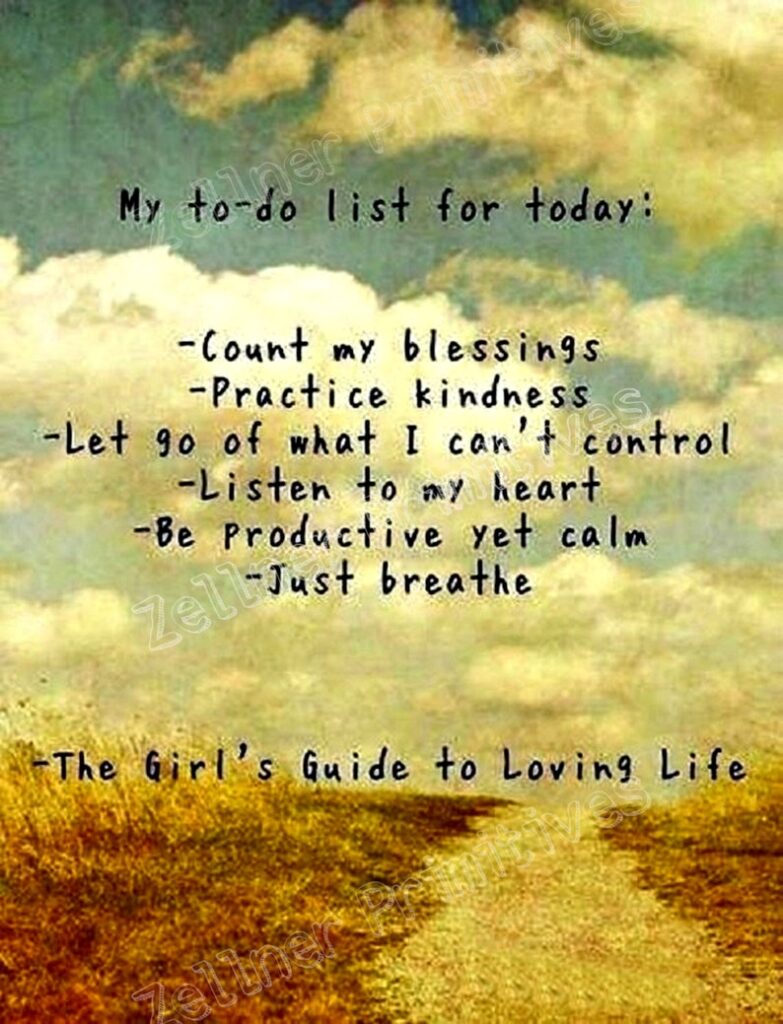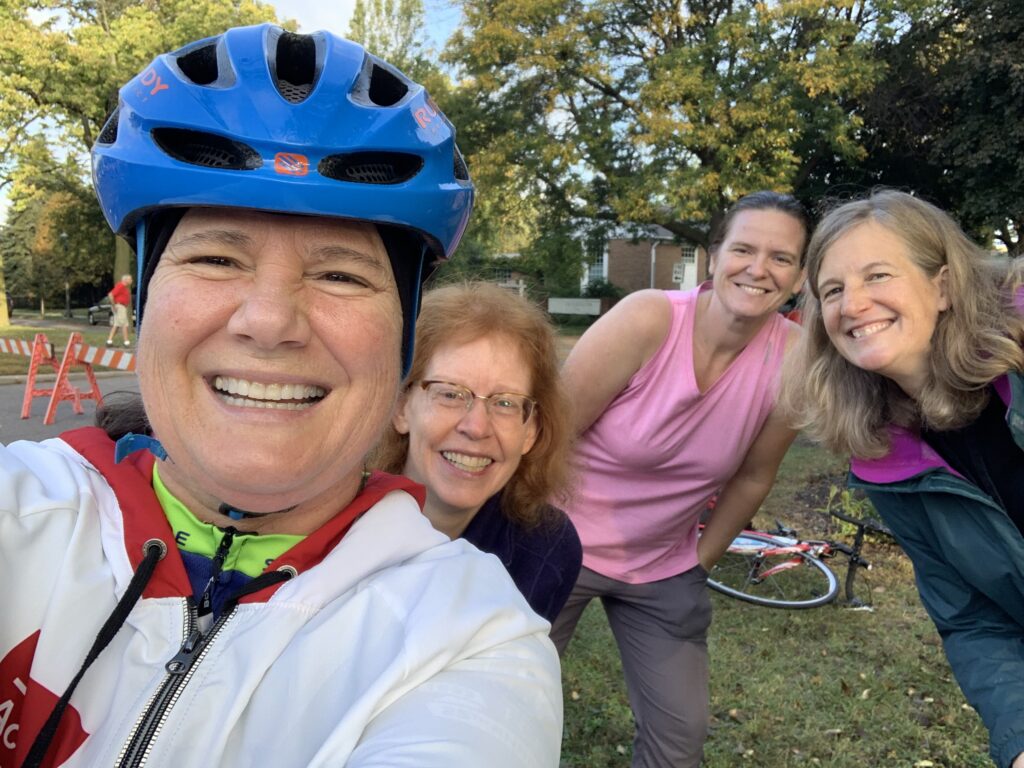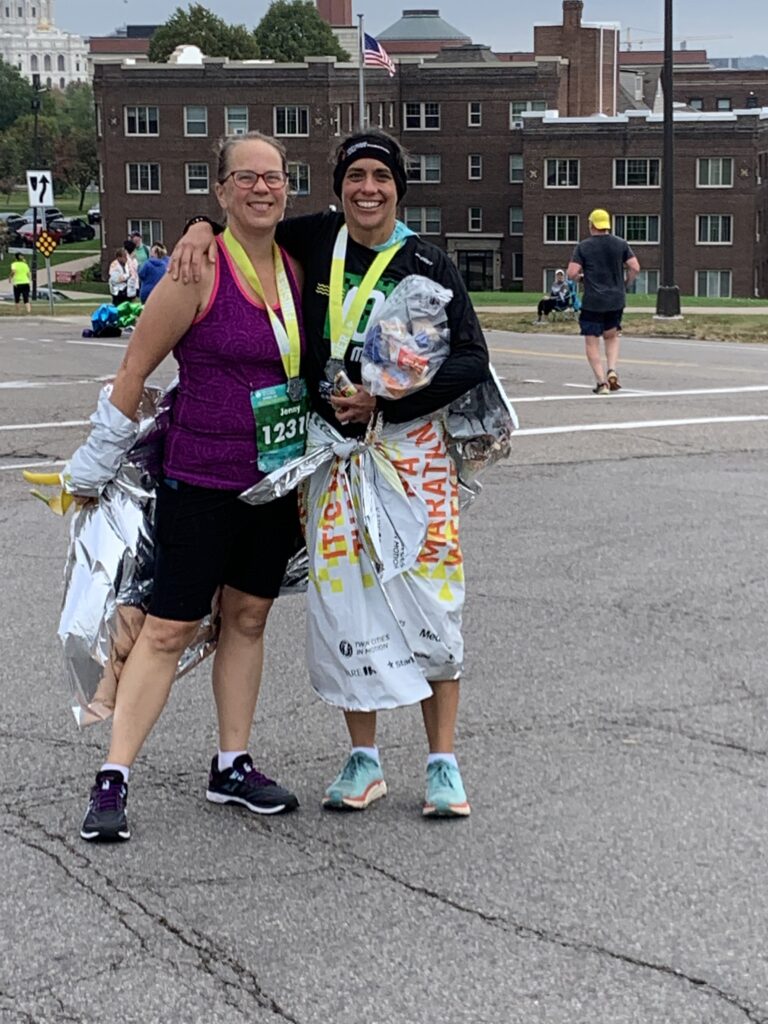Every year I review my treatment plan with my psychotherapist. I have a diagnosis of PTSD that makes complete sense to me given my childhood, my health challenges and the layers of trauma I have survived in my life. This past week, my therapist and I were again reviewing my treatment plan and she asked me if I thought I had an anxiety disorder.

The timing of her question was perfect. I’ve recently signed up to become a Mental Health Advocate for students at the University of Minnesota Twin Cities. It’s a year long training that requires I read quite a bit and attend a few webinars to hone my knowledge and skills.
People in general have a tendency to tell me their stories and their issues, likely because of my empathic tendencies, so being a Mental Health Advocate makes good sense to me. This week, I was doing the first module of study and it was about the increase among students in mental health diagnosis that has happened over the past few years.
The three things on the list of things students are reporting a high level of diagnosis are depression, anxiety and panic attacks. They had us read detailed descriptions of each of these so we can better understand our students and what they are experiencing.
Reading about depression and panic attacks was helpful, but they didn’t resonate for me personally. Then I got to the section about anxiety and I said to myself, “oh yeah, this one I can totally relate to.”
From The American Psychiatric Association:
Anxiety refers to anticipation of a future concern and is more associated with muscle tension and avoidance behavior.
They go on to describe General Anxiety to be:
Generalized anxiety disorder involves persistent and excessive worry that interferes with daily activities. This ongoing worry and tension may be accompanied by physical symptoms, such as restlessness, feeling on edge or easily fatigued, difficulty concentrating, muscle tension or problems sleeping. Often the worries focus on everyday things such as job responsibilities, family health or minor matters such as chores, car repairs, or appointments.
This makes sense. This summer, as I’ve been sorting and healing from the trauma from my childhood about moving, I have experienced many of these symptoms: restlessness, feeling on edge, difficulty concentrating and problems sleeping.
Coping skills for anxiety management
Thankfully, I’ve learned many helpful coping skills over the years. My top three coping skills for my anxiety are listed here, in case you too are dealing with anxiety and maybe these will be of use for you too
Anxiety Coping Skill 1: Daily meditation & deep breathing
I’ve mentioned this before and I mention it again here, I use the Insight Meditation app on my phone every single day.
Before I get out of bed, I do a meditation from the Insight Meditation app and I do one from the My Life app and on days when I notice the anxiety for what’s ahead on that particular day, I do a third meditation from the buddhify app. At minimum, I do a 7 minute meditation. Some days, I lie there focused on my breathing for nearly 30 minutes.
This habit reminds me to pay attention to the tension in my body throughout the day and when I notice myself holding my breath or tensing my muscles, I close my eyes and breathe deeply for at least 3 breaths. A saving grace to the day!
Anxiety Coping Skill 2: Exercise
The majority of this blog and this website is about endurance exercise, so it makes sense that one of my life & anxiety coping skills is exercise!

Biking to be the cheer squad 
Jenny & Nadine ran the TC10 mile race
Through the increased tension and anxiety of this pandemic, getting out in the world to swim, bike, run, lift weights and cross country ski has reminded me of how strong and safe I am when I tune into this body temple I get to live in everyday.
Just today, as I write this post, I reflect on how good it felt to run-walk-run 6.15 miles this morning along the Mississippi River and then go do a short core and arms lifting workout at the gym.
Anxiety Coping Skill 3: Cook tasty, healthy, fresh food every weekend for the week
This coping strategy is essential for good diabetes management, reducing my stress levels and for reassuring myself that I have a good food plan ahead for the week.
Plus, I love marathon cooking! Meaning, I love spending an afternoon in the kitchen preparing healthy options for the week to come. As you might gather, I have no issue eating repeat items, known by some as leftovers as the week goes by. I eat lots and lots of vegetables this way!
Might seem obvious, but maybe not. I get very worried if I don’t have a clear plan for the week ahead regarding what my meals will be. Having a variety of healthy, tasty, fresh food options in the fridge on Sunday afternoon for the week ahead causes profound calmness in my being.
There you have it, my top 3 anxiety coping skills. What do you do to manage your anxiety, if you experience anxiety? I love hearing from you!
Be well and see you next week!
Are you on my email list yet? If not, please take a moment and sign up today. I won’t ever share your email. You’ve got my word!


I agree with all of your tips. Here are a couple of more. First, get off of social media. It causes anxiety since users will often feel less satisfied about their own lives when compared to the curated lives others put on social media. Not to mention the emotionally charged political, social and other arguments that can trigger anxiety. My anxiety dropped considerably when I got off FB last year. Second, embrace stoic philosophy. Those who do are not emotionless, dispassionate people. That is a modern misinterpretation. The primary tenet of stoic philosophy comes from the writings of Epictetus, the 1st century Greek philosopher. “People are not disturbed by things, but by the view they take of them.” Be slow and methodical to respond to things in a logical and reasoned manner, not with high emotion or cognitive bias. I highly recommend reading “How to Think Like a Roman Emperor” by Donald Robertson. Follow that up with a modern translation of Marcus Aurelius'”Meditations.” Aurelius was likely the most successful Emperor that Rome ever had, and stoic philosophy guided his entire adult life. Yes, he was an Emperor, but he didn’t have it easy. He suffered for years from the plague and died early. He lost all but one of his children and his wife during his lifetime.
Cabe,
Thanks for your thoughts. Very intriguing!! Will have to check out your resources.
Excellent blog as usual. I find time laughing and connecting with people and nature are my main strategy for staying present and mentally calm.
I love that you are becoming an official advocate for health minds. Thank you.
I love it that you affirm laughing and connecting and time in nature Linda!!! All three of those are indeed super good for staying calm and present!! And yes, becoming a Mental Health Advocate is a good next step!! There are over 140 of us in the training this year!